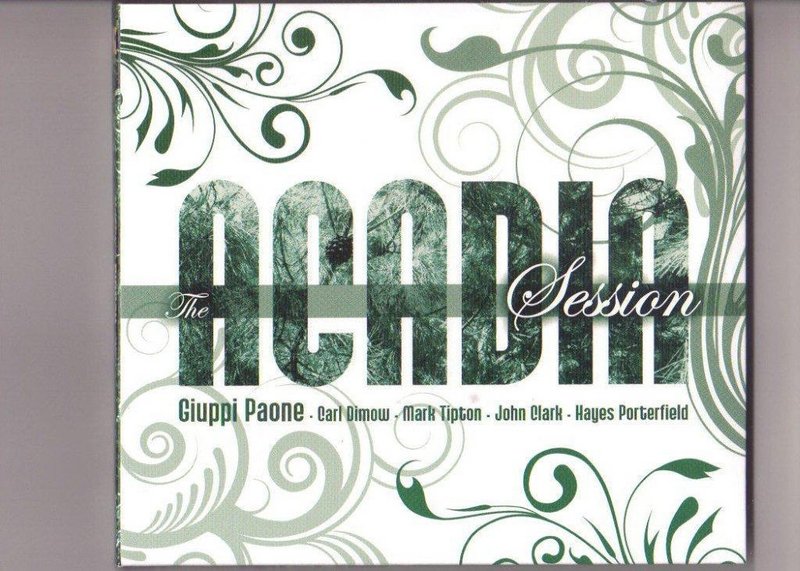Italy has welcomed American jazz artists over the years, often providing musical support for them from a cadre of homegrown players.
Things sort of came full circle when local jazz/world/klezmer flutist Carl Dimow met the accomplished Italian vocalist Giuppi Paone in the summer of 2012 while she was visiting a friend in Portland. The connection they made drew them very quickly into Acadia Sound to do some recording.
We are told that “no goal, plan or arrangements” were on the table for these sessions. The recordings captured on Paone’s new CD “The Acadian Session” show, however, that very good things can happen in the musical moment.
Schooled in jazz as well as classical and Indian music, Paone visits all her sources but emphasizes vocalese and scat as well as a bit of postmodern weirdness. It’s the fourth cut before she utters a discernible word. Although she employs an operatic theatricality at times, she also knows when to take off the mask and set lyricism free.
Mark Tipton on trumpet, John Clark on bass and Hayes Porterfield on drums joined the duo for this set highlighted by deconstructive takes on two standards.
Dimow leads off Cole Porter’s “What Is This Thing Called Love” with the flutter of some Japanese-sounding flute evocations. When Paone enters with Clark’s acoustic bass underneath, the three journey into a very thoughtful examination of Porter’s reverie. “You took my heart and threw it away” sings Paone both plaintive and angrily. Desperation competes with vocal flourish on the title line. The question within the word “what” never seemed more obsessively urgent. Clark fades the scene to black with a brief solo that confirms the mystery of it all.
The oft-covered “Lover Man” brings in drummer Porterfield for a take that tends more toward pure jazz. Paone searches around in the lyrics for nooks of feeling before going wordless for a bit of conversation with Dimow’s flute. “Someday” is the word the singer finally finds almost painful to consider before the band helps her recover for a strong finish.
Paone’s “Late-Late Nite Ferry Blues” is one of the most wide-open tunes in terms of collective expressiveness, with Tipton, Dimow and Paone traversing the dark waters established by Clark and Porterfield. This piece and “La porta sull’oceano” confirm that this group, full of a spontaneous intimacy, found harbor in Portland while still hearing the call of the open sea.
Steve Feeney is a freelance writer who lives in Portland.
Send questions/comments to the editors.



Success. Please wait for the page to reload. If the page does not reload within 5 seconds, please refresh the page.
Enter your email and password to access comments.
Hi, to comment on stories you must . This profile is in addition to your subscription and website login.
Already have a commenting profile? .
Invalid username/password.
Please check your email to confirm and complete your registration.
Only subscribers are eligible to post comments. Please subscribe or login first for digital access. Here’s why.
Use the form below to reset your password. When you've submitted your account email, we will send an email with a reset code.